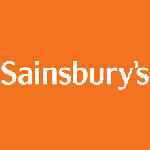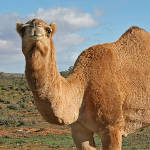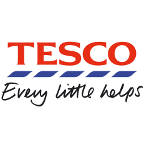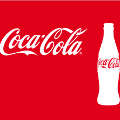
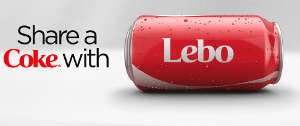 If the silence from the official sponsor of the Sochi Olympic Games concerning the Russian anti-gay law has some up-in-arms, its latest sales initative is unlikely to improve the situation. The "Share a Coke" marketing campaign organised in different countries has taken a new turn in South Africa. In addition to the list of more than 400 first names that can replace the brand's logo on the can, the South African version of the dedicated "Share a Coke" website allowed a virtual bottle to be customised with the inscription of your choice. However, some words such as "gay", "lesbian" or "homo" are refused by the platform and produce a strange error message. "Oops, let's pretend you didn't just type that. Please try another name".
If the silence from the official sponsor of the Sochi Olympic Games concerning the Russian anti-gay law has some up-in-arms, its latest sales initative is unlikely to improve the situation. The "Share a Coke" marketing campaign organised in different countries has taken a new turn in South Africa. In addition to the list of more than 400 first names that can replace the brand's logo on the can, the South African version of the dedicated "Share a Coke" website allowed a virtual bottle to be customised with the inscription of your choice. However, some words such as "gay", "lesbian" or "homo" are refused by the platform and produce a strange error message. "Oops, let's pretend you didn't just type that. Please try another name".
This could lead you to think that only proper nouns or ones with no sexual connotation can be validated. However, the word "straight" ("heterosexual") comes up with no problem at all on the red and white label of the drink. Whilst the brand has since closed its virtual customisation service, it has still not explained these discriminatory restrictions. For their part, homosexual rights defence associations are calling for a boycott of the brand.
*Illustration from the Coca-Cola Facebook page : https://shareacoke.co.za
News in the same category
This is an ambitious project: Sainsbury's is about to launch a £10 million plan to fight food waste, and is searching for a test town.
MuscleFood.com has just started to sell raw camel milk online. Sold for £19 a 500ml bottle, it costs as much as champagne but it's said to be so incredibly healthier than regular milk.
Tesco wants our children to like fruits. It also wants everyone to get in a festive spirit. The supermarket chain is therefore offering fruits to children in Glasgow, and delivers free mince pies across the UK.
When the patisserie world meets the prison world, the result is gourmet and committed. Whether it is the Bad Boy's Bakery biscuits created by Gordon Ramsey or the Zonzon project, the aim is to combine reinsertion and gourmet pleasures.

